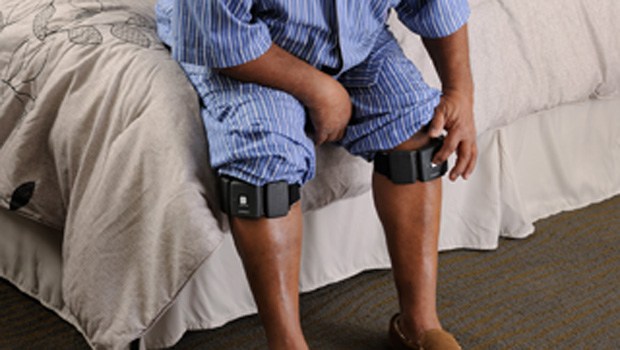Treating Coughs and Colds (Along With Your Sugar and Blood Pressure)

Cough, cold and influenza season is upon us. It can be difficult for anyone to select a medicine to treat with the thousands of over-the-counter products available in the OTC aisle and behind the counter. Add in a condition, like diabetes, and the selection process can become overwhelming. Complicating matters, some medicines may interact with prescription medicines, or contain carbohydrates that can affect blood sugar levels. Unfortunately, carbohydrate content is not included on the FDA Drug Facts label.
Use the following tips to select an over-the-counter medicine to treat cough and cold symptoms.
· Controlled blood sugar levels offer more options – If your A1c and blood pressure values are at or near goal before illness onset, many over-the-counter medicines can be taken safely for a few days. Colds usually start with a sore throat followed by a combination or alternating runny/stuffy nose. Symptoms generally resolve in 7 to 14 days. Because symptoms change every few days with a cold, medicine to treat symptoms should only be taken while those symptoms last; which is usually only for a few days. Keep in mind that blood sugar levels go up naturally during illness due to the stress that being sick places on the body.
· Select single ingredient products – With medicines, more is not always better! Many over-the-counter medicines are combination products that contain multiple ingredients. Cough syrups often contain two medicines: one to stop cough (suppressant) and another to encourage cough (expectorant). It does not make sense to take both at the same time.
In addition, combination products often contain acetaminophen. Acetaminophen is used to treat pain and fever. If you do not have pain or fever, there is no reason to take acetaminophen. If you are taking several different products, you may overdose on acetaminophen and not realize it. Overdose of acetaminophen can lead to liver damage.
Another example is caffeine. Over-the-counter medicines to treat headache, which may occur during a cold as a result of sinus pressure, sometimes contain caffeine. Caffeine can raise blood pressure. This can make blood pressure lowering medicine less effective. More medicine means an increased risk for drug interactions and exposure to medicine that you do not need.
· Choose pills over syrups, if possible – Syrups may contain sugar and sweeteners to make them taste better. As mentioned previously, carbohydrate content is not included on the Drug Facts label, unlike on food labels. This makes it hard to determine how much carbohydrate is contained within the medicine. For example, NyQuil® Cold and Flu contains 20 grams of carbohydrate in each 30 mL dose. This is equal to a snack for some patients with diabetes. Add in that this medicine can be taken four times a day, and that adds up to 80 grams of carbohydrate just from medicine. Tablets and capsules do not need sugar or sweeteners to enhance the taste.
In addition, alcohol is often added to syrup medicines. For example, NyQuil® Cold and Flu contains 10% alcohol. This is similar to the alcohol content in some beer and wine. Keep in mind that alcohol can lower blood sugar levels to such an extent it can cause hypoglycemia (low blood sugar). Tablets and capsules do not contain alcohol.
There are not many resources for patients to find the carbohydrate content of over-the-counter medicines. Calling the manufacturer’s 800 number provides the most up-to-date information. This can be found in the “Questions” section of the Drug Facts label. The ketomeds.com website lists the carbohydrate content of prescription and a few over-the-counter medicines. The website may be out-of-date as it has been several years since it was updated (May 2014).
· Consider topical medicines as an option – Because they do not get into the bloodstream, topical medicines may be a better choice than those taken by mouth. For example, a nasal spray may be a better choice for a stuffy nose. The ingredients in oral medicines to treat a stuffy nose can increase blood pressure. Nasal sprays work only in the nose, rather than affecting the whole body, and will not increase blood pressure levels.
Consider icing the area, using heat or a topical cream or ointment for aching muscles rather than ibuprofen or acetaminophen by mouth. Use caution when applying topical medicines that contain methyl salicylate or trolamine salicylate. Applying too much medicine or applying the medicine too often can cause the medicine to get into the bloodstream, leading to overdose. In addition, if you have neuropathy apply heat with caution as you may burn your skin without realizing it.
· Diabetes specific products are available, but not always the only choice – Some over-the-counter medicines are available in products specially formulated for patients with diabetes. They are usually labeled as “sugar-free” or “for people with diabetes.” These products contain no carbohydrate and can be used by patients with diabetes without affecting blood sugar levels. For example, Diabetic Tussin® DM Maximum Strength contains 0 grams of carbohydrate in each 10 mL dose. Keep in mind the Drug Facts label should be reviewed to determine if the ingredients contained in the product appropriately treat your symptoms. Otherwise, a product that is “sugar-free,” but does not have the ingredient needed to treat your symptoms, is not an appropriate medicine. More medicine means an increased risk for drug interactions and exposure to medicine that you do not need.
· Ask the pharmacist – Pharmacists are the over-the-counter medicine experts. They can help you select a medicine that will treat your specific cough and cold symptoms. In addition, pharmacists can check for drug interactions with your diabetes medicines, other prescription medicines (for blood pressure or cholesterol), and other over-the-counter medicines. Pharmacists can help you find a safe and effective over-the-counter medicine that will not interfere with your other medicines.
Overall, it is important to read the Drug Facts Label for each over-the-counter medicine you take. Don’t automatically assume that over-the-counter medicines are safe or unsafe for individuals with diabetes. Selecting the correct medicine will allow you to treat your winter cold and flu symptoms without risk of interfering with your diabetes meds or adding ingredients you
don’t need.
Editors’ Notes: Before selecting a pain or fever reliever, check your meter and CGM manuals or the manufacturer’s web sites to see if false readings have occured during times of use of such products, especially if you (or your child) are taking acetaminophen (Tylenol, Children’s Tylenol, Panadol, APAP, and generics, all of which can also affect liver and kidney function in steady use), and have in mind that meter readings to calibrate your CGM might be affected. Even better, ask your pharmacist.
Want more news on Type 2 diabetes? Subscribe to our newsletter here.




